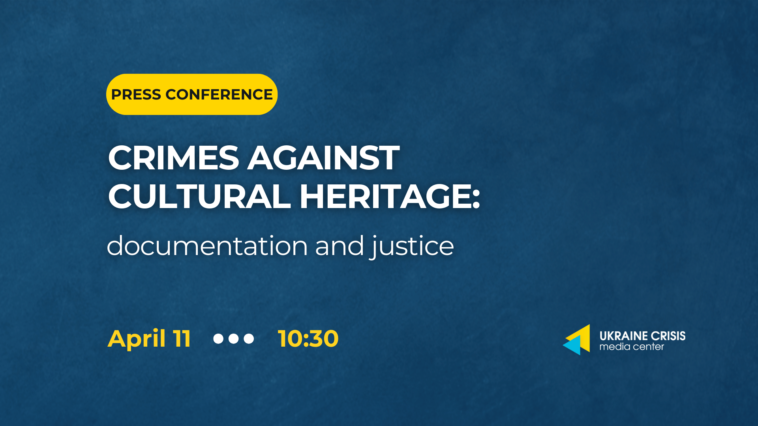How to ensure that the destruction of Ukrainian cultural monuments, museums and artifacts by the Russian Federation does not go unpunished? How to collect evidence of crimes against cultural heritage, including by representatives of the cultural sector, so that it can become part of the indictments in international tribunals?
These topics were discussed by the participants of the four-day training in Kyiv: museum workers, investigators, prosecutors, military, academics, civil society representatives, and journalists. With the participation of international experts, they discussed gaps in practices and legislation on collecting evidence of crimes against cultural heritage, developed algorithms for cooperation, and mastered legal tools for prosecuting perpetrators at the national and international levels. Among the trainers were representatives of 7 countries (the United States, the United Kingdom, Sweden, France, Mauritius, the Netherlands, and Ukraine), including prosecutors who have worked with the International Criminal Court to prosecute crimes against cultural heritage in Mali, Bosnia, and other countries.
The April 11, 2025 press conference will summarize the results of the training, outline the main challenges and steps needed to achieve justice.
Crimes against cultural heritage are not just an attempt to erase history, but a targeted attack on the identity of a people.
Live broadcast is available via the link.
Details:
The workshop “Collecting and Processing Evidence of Crimes Against Cultural Heritage” was organized by the Agency for Cultural Resilience (ACURE) and the Maidan Museum in cooperation with the Atrocities Crime Advisory Group for Ukraine (ACA – ICJI) and implemented with the support of the Swedish Institute, Cultural Heritage without Borders (CHwB), Cultural Emergency Response (CER) and DutchCulture.Contactperson:KseniaDvornikova – 097 602 34 22








